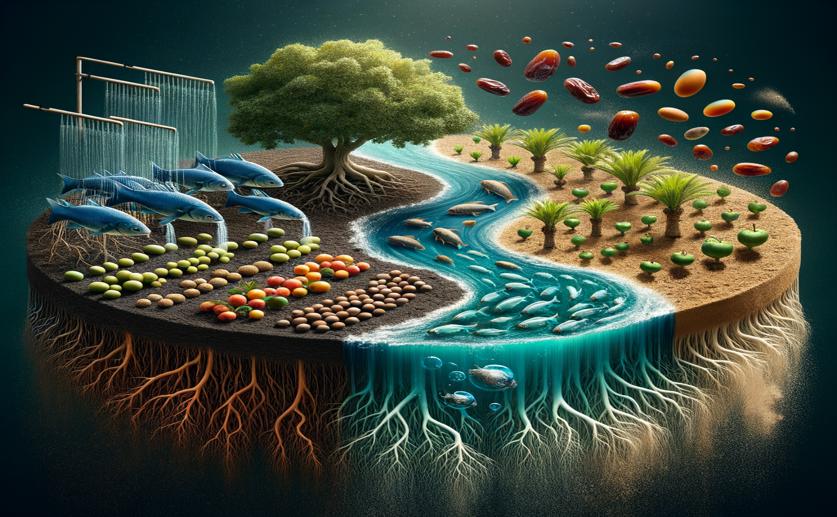
How Fish Farm Water Affects Soil Health, Nutrients, and Date Palm Fruit Quality
Jim Crocker
12th August, 2024

Image Source: Natural Science News, 2024
Key Findings
- The study by King Saud University explored using aquaculture wastewater for irrigating date palm orchards in Saudi Arabia
- Aquaculture wastewater irrigation increased soil nutrients like phosphorus, potassium, and nitrogen significantly compared to freshwater irrigation
- Date palm fruit weight, length, and moisture content improved by 26%, 23%, and 43%, respectively, with aquaculture wastewater irrigation
References
Main Study
1) Impacts of aquaculture wastewater irrigation on soil health, nutrient availability, and date palm fruit quality.
Published 11th August, 2024
https://doi.org/10.1038/s41598-024-68774-0
Related Studies
2) Investigating and Managing the Impact of Using Untreated Wastewater for Irrigation on the Groundwater Quality in Arid and Semi-Arid Regions.
3) Environmental assessment of urban wastewater reuse: treatment alternatives and applications.
4) Impacts of Long-Term Irrigation of Domestic Treated Wastewater on Soil Biogeochemistry and Bacterial Community Structure.
5) The responses of a soil bacterial community under saline stress are associated with Cd availability in long-term wastewater-irrigated field soil.



 18th June, 2024 | Jim Crocker
18th June, 2024 | Jim Crocker